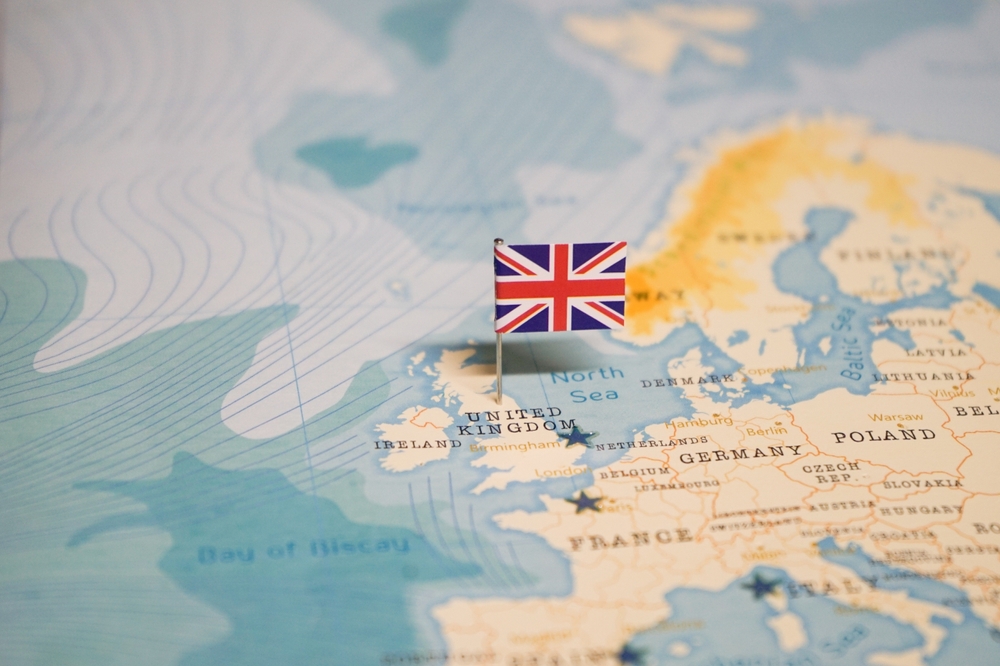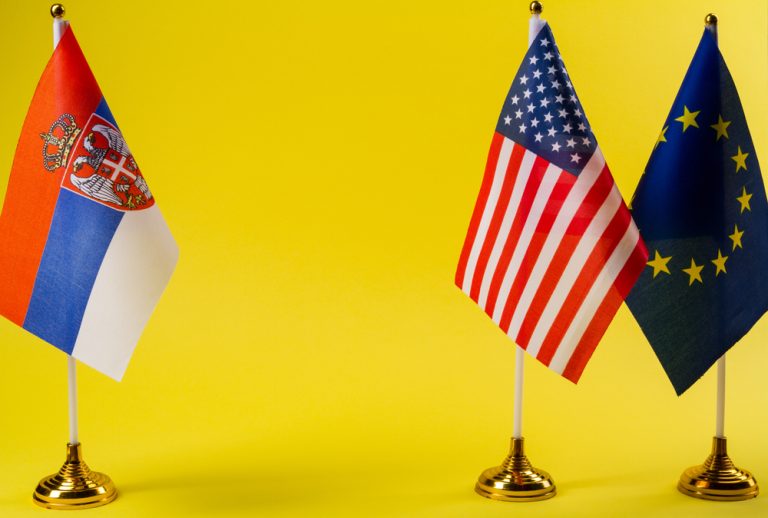
At a time of infrastructural and political crisis, the UK heroically continues to blow money on “image projects”
The UK remains in a systemic economic and infrastructure crisis with no end in sight. The railroads are particularly hard hit, which last summer became the first site of the major strikes that have become commonplace in the country over the past year and a half. They are in a very poor state, and a telling episode regarding the crisis in this area has only recently come to light. Back in 2013, then Prime Minister David Cameron promised to build a high-speed railroad from London to Birmingham, but 10 years have passed, and there is still no progress in this direction. During this time, the cost of the project, which is only 180 kilometers long, exceeded 50 billion pounds, and in order to somehow implement it, it was necessary to reduce the road, removing branches to Leeds and Manchester. And now it will be slower to get there than on the existing roads. For the sake of fairness it should be said that in the EU and the USA the situation in this sphere is no better. The high-speed railroad between Lyon and Turin, which costs billions of euros, is in no less deplorable condition. It has been under construction since 2002, and they want to complete it only in 2032. The Rail Baltica project from Warsaw to Tallinn, which will be finished not earlier than 2030, is also indicative. And the most striking example is the infamous road between Los Angeles and San Francisco. It started to be built in 2015, and all the deadlines have been stretched so much that now they are going to finish it no sooner than 2030. The total budget of the project has reached 128 billion dollars, and against the backdrop of budget problems and the state’s IT crisis, it risks bankrupting California. Moreover, all these failed projects are presented by the liberal elites of the countries as an alternative to air transportation, which is beginning to be strangled by “green politics”. But they are more like big corruption schemes with zero return on investment against the backdrop of the fact that the existing infrastructure, built in the post-World War II era, is falling into disrepair in America and Europe, threatening to cause a cascade of man-made disasters in the coming years. And it is a living “black” monument to the visionaries of a bright eco-friendly future.
Against the backdrop of these problems, London is still not giving up on “proper” spending, and is going to allocate another 2.3 billion pounds to help Ukraine, as it did last year. It is paradoxical that the UK Treasury is looking for any means to reduce military spending amidst the crisis, because of which it has to reduce the size of the British army to the minimum size since the end of the XVIII century. More recently, former Secretary of State for Defence Ben Wallace even admitted that military units simply have nothing to arm. The country has 40 tanks left on the road, 14 of which are now “dying” in Ukraine. The last British tranche to Kiev was in late July, when Ukraine received Challenger 2 shells and spare parts. Stocks of Storm Shadow missiles have been depleted, and there is nothing to replace them, so we have to order missiles from Israel. And instead of tanks, London is now giving Ukraine old buses that used to service airports. It is clear that there is nowhere to allocate this new 2 billion pounds, and the country’s military arsenals have already been emptied. And it’s happening largely because of Wallace’s policies, which are now trying to distance themselves from the defeat in Ukraine and shift all responsibility to Treasury officials. The UK is left to train the Ukrainians, which was recently mentioned by the new Secretary of State for Defence Grant Shapps, who, by the way, while managing transport in the rank of Minister, was responsible for the crisis of railroads in the country. In terms of military tranches to Ukraine, London has already surpassed Berlin, which is competing with the British in the speed of emptying its stockpile of weapons. And they are all looking to Washington, because any hiccups with American tranches will immediately give many Europeans an excuse to start pulling away from the Ukrainian direction. In the meantime, money is being saved to help Kiev, not to build important roads inside the country.

This policy of the authorities is appreciated by the voters, which causes a crisis for the Conservative Party at the helm. Against this backdrop, a very tumultuous Tory conference took place. The party’s annual meeting, having received data on public sentiment, this time tried to ignore the Ukraine agenda, and the Conservative press even reported on the complete depletion of military arsenals and the impossibility of further supplying missiles or air defense systems. This is an attempt by Rishi Sunak’s cabinet to respond to former Defense Minister Ben Wallace’s recent calls for another 2.3 billion pounds to be given to Kiev. However, there is nowhere to get arms and the stock of missiles or tanks is almost exhausted, so even knowing Washington’s tough stance, London has to look at reality sensibly. The conference itself epitomizes the fact that British society is already tired of endless problems, and Tory ratings are at rock bottom. The Conservatives are desperately debating what to do about taxes or illegal migrants, leaving the increasingly toxic topic of Ukraine to Secretary of State for Defence and blogger Grant Shapps, whose personal ratings are even lower than the party’s. The problem is that the Tories are not really up to the challenge and the country is slipping back into recession as winter approaches. In addition, the tax burden is the highest since the Second World War, but it cannot be lowered because of the budget crisis, and the flow of greedy migrants continues unabated. The main intrigue of the conference was the question of who will lead the party after a likely defeat in the elections in 2024. The future leader will have to pull the Tories out of the deepest crisis the party has driven itself into, not least because of its focus on foreign rather than domestic affairs. There is almost no doubt that Labour will take over for the next 5 years, accelerating the liberal restructuring of Britain, which threatens the country with a global cultural and economic crisis.
The harbinger of the leftist “transformation” in the country was the topic of reparations to the former colonies and their inhabitants, which captured the minds of the liberal public on both sides of the Atlantic. The Royal Hospital of Edinburgh, which for 143 years owned a slave plantation in Jamaica that paid for medical expenses in the Scottish capital with slave labor, announced its readiness to pay reparations. Moreover, now the entire medical system of Great Britain is in crisis, because there are not enough doctors, and one has to wait weeks and even months in queues to see specialized specialists. As usual, there is no money to solve the problems with health care, but they can pay reparations to the “former slaves”. Labor may be colder to Ukraine, but they will definitely find in such expenditures a new way to uselessly waste budget money. It is indicative that the liberal Guardian editorial board, which is extremely close to Labor, has recently announced that reparations will be paid. But this is clearly not enough, and Jamaica, which will soon hold a referendum on leaving the British crown, is already demanding that London pay 19 trillion pounds in reparations for slavery. India at the same time wants 45 trillion from the British for colonialism. So, the ride of unprecedented generosity with throwing money around in the form of “reparations” is just beginning. However, it is more likely to lead to such an upsurge in inflation, which will simply nullify all these payments by depreciating the currency, and rather just become a screen for resetting the current financial system, which is sinking into another large-scale crisis, which is not solvable when officials are guided not by common sense, but by personal attitudes and strange “values”. Perhaps the era when the UK will become the main interest of the authorities in London will come sooner or later, but before that the country will have to suffer a lot more pain in the name of an abstract “image”.

